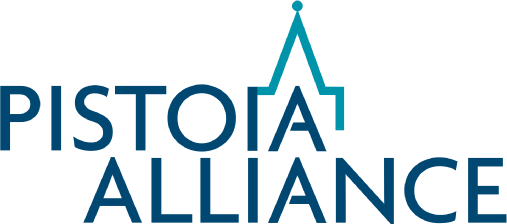Life science professionals highlight technology and healthcare as collaboration priorities for ensuring successful application of AI
Boston, 7th June, 2018: A survey of 229 life science professionals from The Pistoia Alliance, a global, not for profit alliance that works to lower barriers to innovation in life sciences R&D, has found the majority (72%) believe their sector is lagging behind other industries in its development of AI. To accelerate the successful use of AI, The Pistoia Alliance has launched its Centre of Excellence for AI in Life Sciences, aiming to encourage greater collaboration between stakeholders to bridge the gap between technology and science. By bringing together best practice, adoption strategy, events, and hackathons covering a range of challenges, the Centre of Excellence will provide a virtual and physical co-working space, enabling life science professionals to learn how best to apply AI, machine, and deep learning to R&D.
The survey found adoption of AI is high, with more than two thirds (69%) of companies using AI, machine learning, deep learning, and chatbots; an increase from when the same question was asked in September 2017, where under half (44%) of respondents were using or experimenting with AI. A further 19% of respondents signalled that they plan to use AI within the next 12 months, with just 12% of life science professionals not using AI at all. Of those currently using AI in their organisations, approximately a fifth (21%) felt that their projects were not yet providing meaningful outcomes, and 21% ‘didn’t know’ if projects were delivering meaningful outcomes. The Pistoia Alliance believes collaboration between interested parties will be essential in ensuring AI projects lead to results that positively impact R&D.
“This survey shows interest in AI remains strong, but there is still a challenge with moving past the hype to a realty where AI is delivering insights with the power to truly augment researchers’ work,” commented Dr Steve Arlington, President of The Pistoia Alliance. “It is significant that a majority of people in our own industry believe we are trailing other sectors in the use of AI, and we must address this issue by working closely with each other and with stakeholders in other sectors. Spaces to virtually collaborate, like our Centre of Excellence, will become even more critical as political and social shifts – from Brexit to changes to US immigration laws – impact how scientists share knowledge and ideas. AI is poised to have a radical impact on life sciences and healthcare, but the industry must give researchers the best chance of success.”
When respondents were asked which sector their primary collaborations will focus on in the next 18 months, the majority said with a technology or data provider (40%). This is an encouraging finding given that access to quality data is crucial to supporting AI; moreover, learning how to build and test algorithms will be a key factor in producing meaningful outcomes from AI projects. This was followed by healthcare (22%), academia (15%), and the government and public sector (4%) – indicating the range of industries that life science companies will need to work with to realise AI’s potential. The Centre of Excellence aims to help facilitate these collaborations by allowing companies to share their expertise and knowledge, in addition to holding events that help organisations build prototypes and pilots that prove the value of AI.
“AI is a multidisciplinary field that needs many inputs to make it effective, and we often hear from our members that making links with other industries, such as the technology sector, is a barrier to AI’s evolution,” commented Dr Nick Lynch, Cofounder of The Pistoia Alliance. “Additionally, there are many concerns around whether AI will ‘take’ our jobs, and how we can ensure AI is ethical and unbiased. The Centre of Excellence will tackle these issues and more through other events and further research, helping researchers understand how AI will augment their work and the role of AI as a fundamental building block in building the Lab of the Future. Ultimately, patients’ lives depend on making breakthroughs, and we encourage anyone interested in AI to get involved with our Centre of Excellence.”
The survey of 229 senior pharmaceutical and life science leaders was conducted via webinar in May 2018. For information and slides from the webinars, see here. To find out how to get involved in the Centre of Excellence for AI in Life Sciences, which is also open to non-member of The Pistoia Alliance, see here.
— ENDS –72% of Life Science Professionals Believe Their Industry is Behind in the Development of AI, Finds Survey from The Pistoia Alliance
About The Pistoia Alliance
The Pistoia Alliance is a global, not-for-profit members’ organization made up of life science companies, technology and service providers, publishers, and academic groups working to lower barriers to innovation in life science and healthcare R&D. It was conceived in 2007 and incorporated in 2009 by representatives of AstraZeneca, GSK, Novartis and Pfizer who met at a conference in Pistoia, Italy. Its projects transform R&D through pre-competitive collaboration. It overcomes common R&D obstacles by identifying the root causes, developing standards and best practices, sharing pre-competitive data and knowledge, and implementing technology pilots. There are currently over 80 member companies; members collaborate on projects that generate significant value for the worldwide life sciences R&D community, using the Pistoia Alliance’s proven framework for open innovation.
